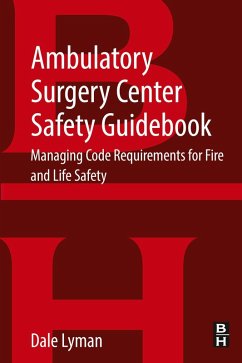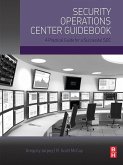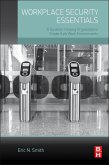Through sample checklists and log sheets, and a systematic process for completing required documentation, the reader is directed through the crucial steps to achieving code compliance. The guide provides ASC staff the knowledge necessary to be in compliance with the Life Safety Code without the need for an outside security or safety consultant. Through this compliance, facilities remain licensed and qualified for Medicare reimbursement, ultimately improving the financial success of the ASC.
- Illuminates the requirements of the Life Safety Code for ASCs for medical and other administrative staff who possess no code knowledge in the ASC setting
- Includes compliance requirements for the code, as well as requirements placed upon facilities desiring to participate in Medicare (CMS) funding reimbursement
- Provides sample checklists and log sheets for each type of system
- Outlines a systematic process for completing the documentation required of ASCs for inspection, testing and maintenance of facility systems crucial to achieving code compliance
Dieser Download kann aus rechtlichen Gründen nur mit Rechnungsadresse in A, B, BG, CY, CZ, D, DK, EW, E, FIN, F, GR, HR, H, IRL, I, LT, L, LR, M, NL, PL, P, R, S, SLO, SK ausgeliefert werden.









